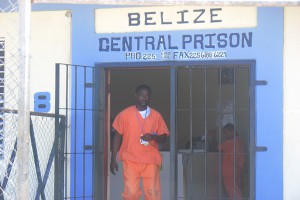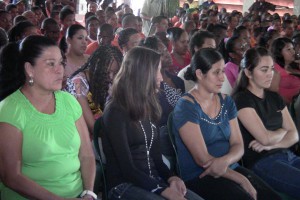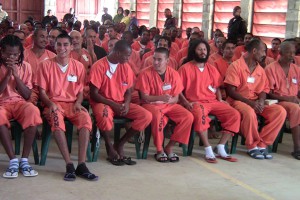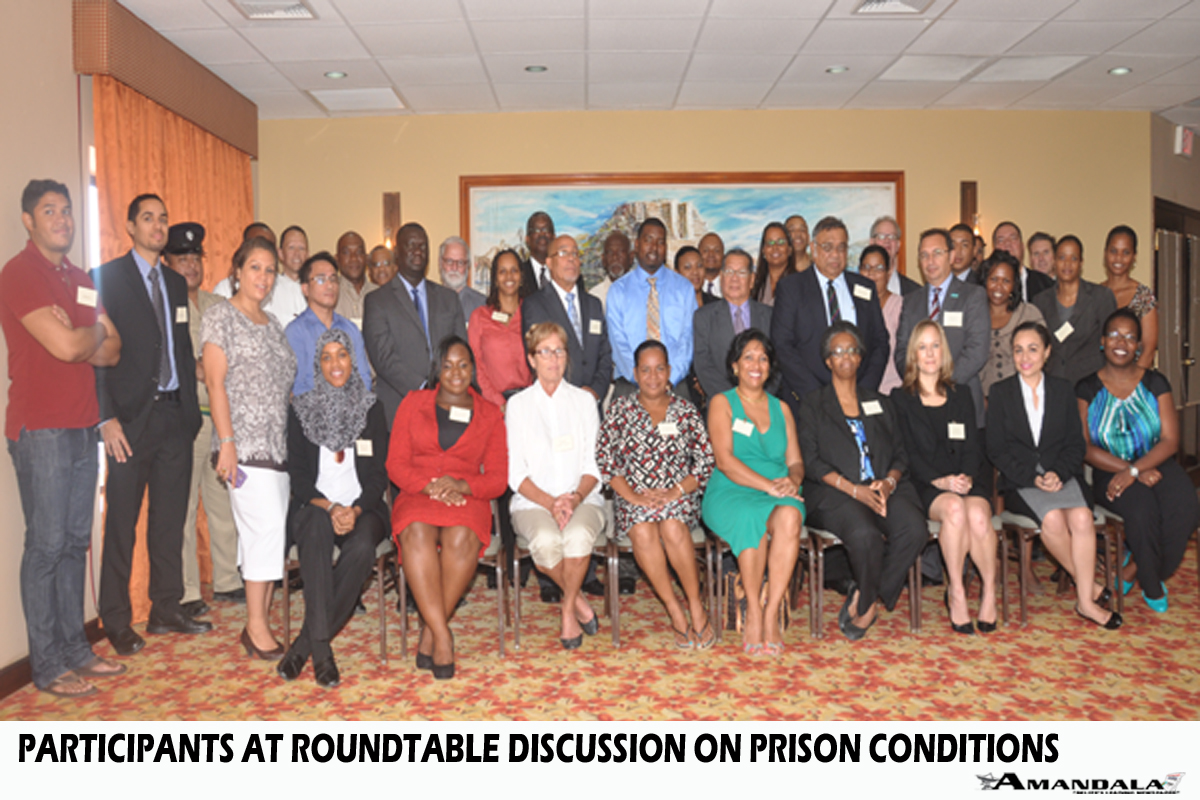Under a subheading captioned “Indefinite detention of mentally ill prisoners,” the report highlights that, “Once a person has been detained at the pleasure of Her Majesty, etc., there appear to be no rules requiring periodic review of the inmate’s mental health. Nor, it seems, are there any rules requiring periodic review of the justification for his continuing detention. I was told that no inmate in this category has ever been re-dealt with by the courts.”

“There are six inmates at the prison who are detained under the above provisions by reason of insanity or unfitness to stand trial,” said the report.
The report describes the condition of a prisoner called “Mr. M,” who has been in prison for 37 years, since 1976, when he was about 20 years-old.
“The availability of effective psychiatric care in the prison is inadequate and does not comply with international minimum standards,” the report adds.
It further commented, “The absence of periodic reviews of the justification for continued imprisonment, whether by psychiatrists or by the courts, is a stark failing in the system. It has resulted in serious breaches of the human rights of mentally ill prisoners.”
In regards to young offenders, the report records that, at the time when it was written, there were 80 inmates in the Wagner Youth Facility.
Juvenile female prisoners are held in the women’s section of the prison, with other female inmates.
According to the report, “The imposition of life sentences without minimum terms on offenders who were minors when they committed their offences is unlawful: see Bowen and Jones v Attorney General of Belize, Claim no. 214 of 2007, Judgment 27, September, 2010. In that case, the Supreme Court held that such sentences violate the prohibition of inhuman punishments in the Constitution of Belize and the UN Convention on the Rights of the Child.”
“There are two inmates at the prison who are serving life sentences for murder despite having committed their offenses when they were minors,” the report stated.

On the section on “The death penalty and death row” the report states: “The landmark case of Reyes v The Queen [2002] 2 AC 235 established that the mandatory sentence of death for all murders in Belize was unconstitutional and that the ultimate sanction of death should be reserved for the worst of the worst cases.”
The report notes that there has been no execution in Belize since 1985, and that the gallows at the prison has never been used.
“There is only one condemned inmate, GB. He is accommodated with the lifers. He was convicted in 2001, before Reyes was decided, and sentenced to death. In light of Reyes that sentence was unconstitutional. He petitioned the Belize Advisory Council in 2010 but his application was refused in 2011. He is undoubtedly entitled to have his case brought back before the court so that his unconstitutional sentence can be revoked and a lawful sentence imposed,” the report comments.
Further detailing the fate of inmates in the Belize Central Prison who have been convicted of murder, the report states, “There are 33 inmates in the prison serving life sentence who were all convicted of murder. Only one person, Adolph Harris, had his life sentence commuted to 20 years’ imprisonment, and that is an exception…. Following a change in the Prison Rules in 2002, inmates convicted of murder can never be eligible for parole, whatever their sentence.”
“After the mandatory death sentence was ruled unconstitutional in Reyes, the Prison Rules were amended to the effect that offenders convicted of murder were ineligible for parole altogether,” the report goes on to observe.
According to the report, “Some murderers must spend the rest of their lives in prison, but irreducible life sentences for all murderers are inconsistent with Belize’s domestic law and with its international obligation.”
Another area of concern that Middleton covered in his report is “Pretrial delays and excessive remands in custody.”
At the time when he did his report, there were 591 inmates on remand, which accounted for 37 percent of the prison population.

“Of these, 171 were on remand to the Supreme Court (the vast majority for murder) and 420 to the Magistrate’s Court. Most of these inmates have been on remand for more than two years and many for much longer. Several appear to have been on remand for seven years,” states the report.
“Whatever the causes of excessive pretrial detention may be, such detention amounts to a violation of fundamental human rights. Everyone, however serious the allegation against him, is entitled to a trial within a reasonable time (section 6(2) of the Constitution). Excessive remands may also reduce the prospects of successful prosecution, because the longer the delay, the more likely it is that witnesses will be hard to find or that their recollection will be impaired, “the report points out.
The report said that “excessive remands are a waste of taxpayers’ money.”
Among the options that the report suggests for dealing with the excessive delays for prisoners on remand is that a dedicated judge or judges deal solely with murder trials, with no jury. It also recommends “allocating greater resources to the judiciary, possibly ring fenced for the reduction of pretrial delays; allocating greater resources to the Office of the DPP, possibly to be ring fenced for the reduction of pretrial delays; imposing custody limits; introducing more muscular case management of pending trials, especially murder trials, for instance, by introducing periodic reviews of continued detention.”
The report says that inmates who “have waited seven years to have their cases brought to trial are in a strong position to argue that their constitutional rights have been violated.”
“The courts may be willing to take whatever remedial steps are needed to ensure that a trial proceeds promptly or, if not, that the prosecution is stayed and the accused released from custody,” the report states.
Middleton, the author of the report, said that several cases of possibly manifestly excessive sentences were brought to his attention.
In his report, he comments, “FC and FW were separate cases dealt with in the Supreme Court but they raise similar issues. They both involved multiple convictions for sexual offences (carnal knowledge, unnatural crime and rape) committed against relatives. The accused were given very long total sentences arising from the imposition of numerous consecutive sentences, 75 years for FC and 80 years for FW.
“Both men have appeals pending in the Court of Appeal. At the time of my visit the appeals could not proceed because transcripts from the Supreme Court were not available. This is apparently a common cause of delay in the Court of Appeal.
“HL was admitted to the prison in May 2001 and subsequently sentenced to 36 years’ imprisonment. This arose from 7 consecutive 5-year sentences for robberies against tourists plus a further year for an escape. According to current practice, HL will not be eligible for parole because he is a foreign national and therefore cannot comply with parole supervision in Belize.”
See Part I of this report HERE.
 “Between 40 and 50 members of the legal profession attended a roundtable discussion on conditions at the Belize Central Prison entitled “Behind The Prison Gates,” that the Bar Association held in partnership with the Death Penalty Project, a London-based NGO that has been working in Belize for the past 20 years.” MORE
“Between 40 and 50 members of the legal profession attended a roundtable discussion on conditions at the Belize Central Prison entitled “Behind The Prison Gates,” that the Bar Association held in partnership with the Death Penalty Project, a London-based NGO that has been working in Belize for the past 20 years.” MORE

